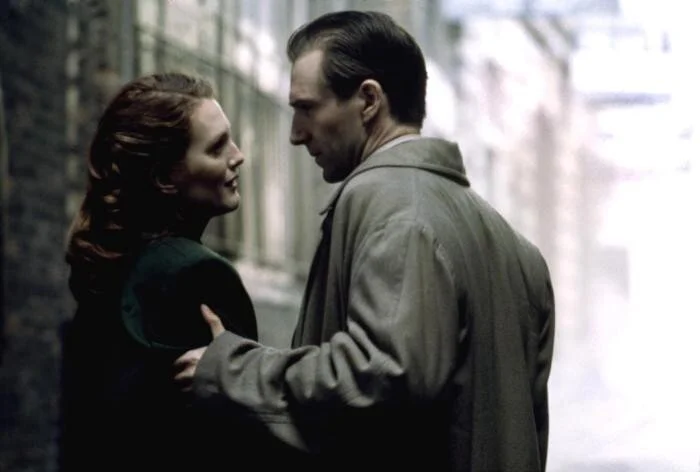The Genealogies of Modernity Journal
The (Newest) Population Problem: Part II
Implicit in this wisdom saying is a sense of the incalculable—that one person is the whole world. This incalculable value transcends the rationalist’s quality of life calculations.
Anthony Shoplik on suffering and meaning in Alfonso Cuarón’s Children of Men
Orphans of the Storm
The death, decay, and melancholy found in the ruins of our fallen world wither against the evergreen flower of our suffering God.
Michael McCarthy on the deepening relevance of Brideshead Revisited
The Great Sphinx: Pontoppidan’s "Lucky Per"
A type of secular self-enclosure partaking in characteristics both pagan and Christian, trollish and monkish, stoic and saintly: a synthesis that registers as curiously incomplete.
Katy Carl on genealogies of selfhood
The Struggles of the Hypermodern Novel
Muffled beneath the sounds of contemporary American life, the discerning reader will hear the reverberations of a question posed to Jesus: ‘And who is my neighbor?’
Charles Ducey on Tess Gunty's The Rabbit Hutch
Existential Ponderings: A Review of Infinite Regress
Is life a gift? Or a calamity? Is existence to be affirmed, or avoided? The answer to those questions may very well depend on what you think about the possibility of forgiveness.
Jeffrey Wald reviews Johua Hren’s novel Infinite Regress
Bewilderment: Getting Modern Parenting Right and Wrong
A cultural product of its time, its value is more anthropological than literary. In an ideological age, what do secular, educated parents most want to believe about their kids?
Maya Sinha on parenting and literature in Powers and O’Connor
Faintly Contemptible Vessels
We inheritors of the Cartesian dream believe that if we had enough knowledge, we could know the past and the future and could banish the fictions which for a hundred millennia have spelled our ruin.
Daniel Fitzpatrick on James Joyce and Thornton Wilder
Writing After Girard
Girard is not only an academic theorist but a veritable agent of culture who has shaped the thinking of writers around the world…. But where there is influence, there is also the potential for anxiety.
Trevor Merrill on novel writing after Girard
The Situation for Women Writers
Neither limited to nor ignorant of the important but circumscribed sphere of domestic life, the finest women’s writing highlight the ways in which private and public life intersect, overlap, and coinhere.
Katy Carl on Virginia Woolf and Sigrid Undset
Comedy and Conversion in Marcel Proust
Something happened between Proust's early efforts and his mature masterpiece, a paradigm shift that made the author capable of transferring his legendary gifts as a comic dinner-table raconteur 'onto the page.'
Trevor Merrill on Proust’s conversion
Fight for Your Long Loud Laughs
So read this book. Support an adjunct. Get ready to laugh. Get ready to scratch your head at points and wonder, “Why did I listen to that dude online who told me to read this book?”
Jeffrey Wald reviews Alex Kudera’s For Your Long Day and finds reasons for laughter
Delta Winter: Faulkner’s Nature and Repudiation
The Faulknerian gaze, turning as much to Greece and Jerusalem as to the big woods of the Mississippi Delta, calls in the grandest distillation of the modern tongue for the restoration of our memory.
Daniel Fitzpatrick on reading Faulkner's “The Bear”
Converting Conversions
If we are open to other readings of this multi-layered love story, we can discover new elements of what it means to “fall into faith as one falls in love.”
Casie Dodd assesses a second film version of Graham Greene’s The End of the Affair
Conversions on the Page and on the Screen
Adapting the Greene’s “The End of the Affair,” these films show the many ways conversion can play out in a modern culture often inhospitable to the human capacity for faith.
Casie Dodd on religious conversions in movies that happen to mention Catholicism
The Guilty Pleasure of Sally Rooney’s "Beautiful World, Where Are You"
The protagonists of “Beautiful World” are no longer confessional, but resigned. Their attitudes towards politics and religion alike are structured by ambivalence.
Kathy Chow reviews Sally Rooney’s latest meditation on modern life
Gatsby and the Loss of Time
Gatsby believes in the future. He trusts in that future where the past will be present again. It is the present that escapes him, and so he falls from the glory he has gathered to himself.
Daniel Fitzpatrick on having all the money and none of the time
Secular Sacraments
Bypassing the quadrille of courtship, Joukovsky repurposes the marriage plot as a witty, unsparing dissection of human vanity and a quasi-sociological look at the mores of America’s de facto aristocracy.
Trevor Merrill reviews A. Natasha Joukovsky’s sparkling, multifaceted debut novel, The Portrait of a Mirror
Demons of the Green World: From Caliban to Anthony Blanche
In remaining unknown, in speaking from the eccentric radicality of their own linguistic-ontological complexes, Caliban and Anthony become the voices of aesthetic criticism within their worlds.
Daniel Fitzpatrick on critique from margins
Death with Dignity
We are not isolated individuals… We are social creatures dependent on one another. If our life has an enormous social element, might not our death likewise?
Jeffrey Wald considers death in Christopher Beha’s What Happened to Sophie Wilder
In Hope of Bulkington: Moby Dick and American Doom
We cannot know the end of America, though we know from the first unfurling of Ishmael’s prophecy that the voyage of the Pequod is doomed.
Daniel Fitzpatrick follows in the wake of the doomed Pequod























